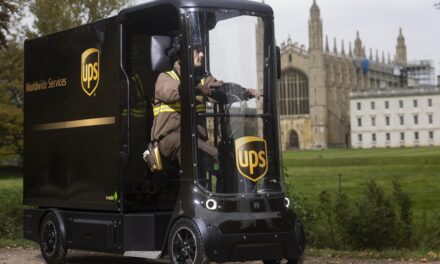
FedEx, UPS target same US customers, but tactics diverge
UPS and FedEx are going after the same road warriors, telecommuters and home office workers — but their methods are surprisingly different.
FedEx bought Kinko's this year and plans to spend USD20 million "rebranding" its 1,256 stores with TV spots that began this month proclaiming, "Our office is your office."
UPS, which absorbed Mail Boxes Etc. two years ago, is hunting retail customers, too. But it's using its 3,400 UPS Stores as a hook for large corporate customers to distribute high-tech parts to field technicians or collect laptop computers or cell phones in need of repairs.
Retail package shipments are vital to both companies because infrequent shippers pay higher prices. About 80 percent of all UPS and FedEx packages are steeply discounted for high-volume shippers.
"Both companies want high-margin retail customers," said Greg Burns, transportation analyst at J.P. Morgan Chase in New York. "The goal is the same. But the execution is different."
UPS Stores are individually owned franchises. They are more numerous than rival Kinko's outlets, but they tend to offer fewer copying, printing and computer services.
Many Kinko's stores stay open around the clock, but UPS Stores don't.
Kinko's stores tend to be in urban business centers, and they bring in far more revenue on average than suburban UPS Stores.
Satish Jindel, a transportation analyst, compares the brands to McDonald's and Subway. McDonald's are larger, staffed with company employees and bring in lots of revenue. Subway stores are smaller franchises and staffed by owners.
"UPS and FedEx are both going after the same market," he said, "but they're positioning themselves differently."
UPS leapt into retail shipping first with its 2001 acquisition of the Mail Boxes Etc. and renamed the franchises as UPS Stores last year. The Sandy Springs company paid USD191 million for Mail Boxes Etc., but it refuses to say how much revenue the stores bring in, how profitable they are or how many packages they route through the UPS delivery network.
Steve Holmes, a UPS spokesman, said the company expects to grow to 5,000 UPS Stores in 2007 from 3,400 today.
"Interest among entrepreneurs who want to open their own franchises has gone through the roof," he said.
UPS' Supply Chain Solutions subsidiary is also using UPS Stores to coordinate laptop computer and cell phone returns for some of its largest clients.
FedEx bought Kinko's in February for USD2.4 billion in cash and hired its 20,000 workers.
Kinko's brought in USD521 million in revenue during the most recent quarter and USD39 million in operating profits. Kinko's operating margin was 7.5 percent, below FedEx's companywide margin of 9.7 percent.
Howard Clabo, a FedEx spokesman, said FedEx expects Kinko's to bring in about USD2.1 billion in sales during the current fiscal year.
"We've made FedEx air and ground services available at all of our stores," he said, "and we've seen positive results right away."
Kinko's employees have traded in their blue aprons for FedEx purple ones, and the company letterhead now sports a new logo. Kinko's says more visible changes such as new signs and TV and radio ads are on the way.
Analyst Burns said he expects Kinko's to remain profitable. But with fewer stores and a price tag about 12.5 times higher than UPS paid for its retail chain, the company is fighting an expensive battle.
"FedEx will get a return on its investment," Burns said. "But they're going to have to do it with fewer touchpoints. UPS' cost of entry was significantly less, so it looks like UPS got a very good value."
Both UPS and FedEx are likely to be outspent in total advertising this year by DHL. Long a distant third in U.S. deliveries, their European small-package shipping rival plans to spend USD150 million for an advertising blitz with the motto: "Competition. Bad for them. Great for you."
FedEx spent about USD80 million in U.S. advertising last year. UPS declined to release its advertising budget.













